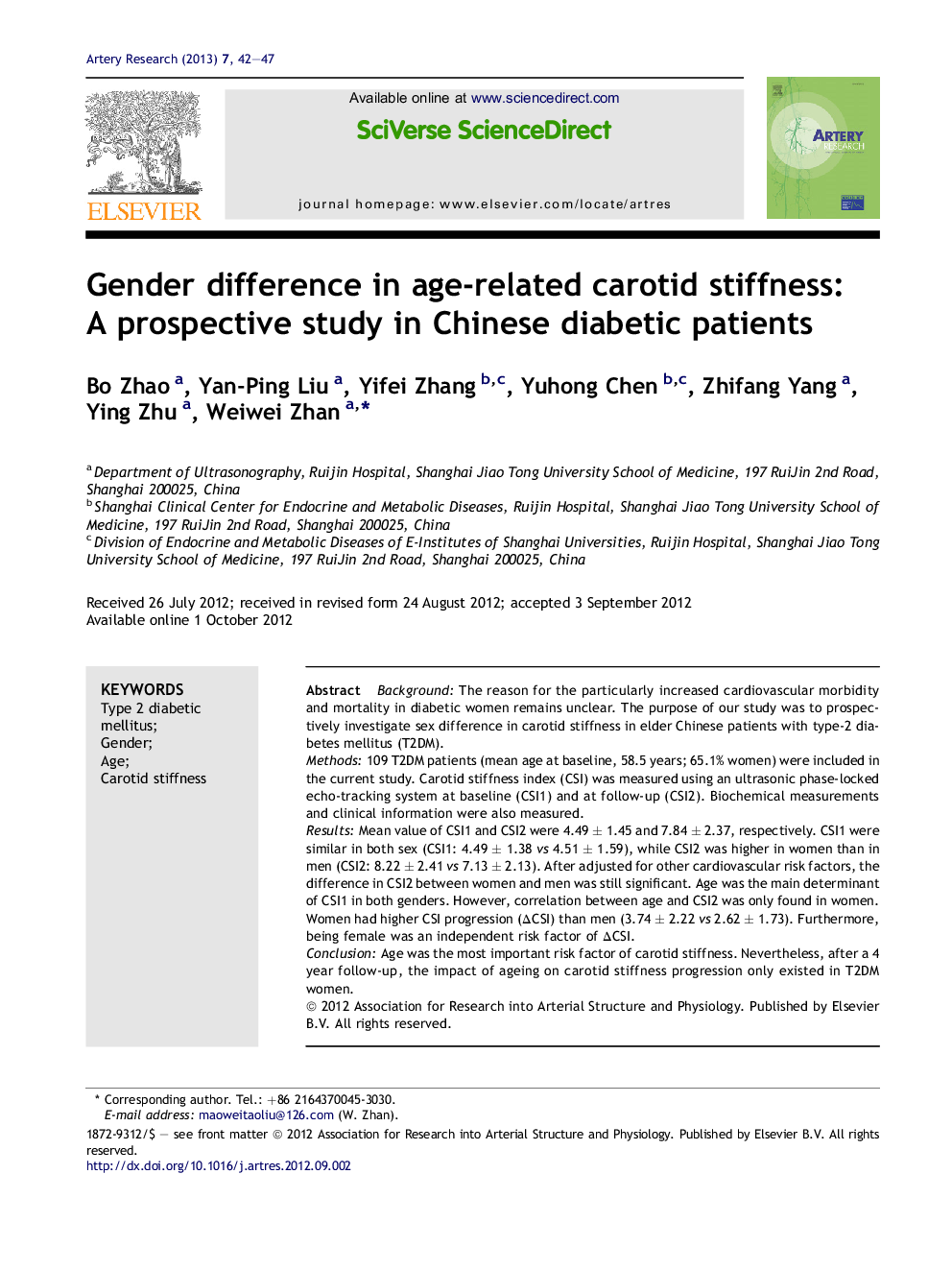| Article ID | Journal | Published Year | Pages | File Type |
|---|---|---|---|---|
| 2891745 | Artery Research | 2013 | 6 Pages |
BackgroundThe reason for the particularly increased cardiovascular morbidity and mortality in diabetic women remains unclear. The purpose of our study was to prospectively investigate sex difference in carotid stiffness in elder Chinese patients with type-2 diabetes mellitus (T2DM).Methods109 T2DM patients (mean age at baseline, 58.5 years; 65.1% women) were included in the current study. Carotid stiffness index (CSI) was measured using an ultrasonic phase-locked echo-tracking system at baseline (CSI1) and at follow-up (CSI2). Biochemical measurements and clinical information were also measured.ResultsMean value of CSI1 and CSI2 were 4.49 ± 1.45 and 7.84 ± 2.37, respectively. CSI1 were similar in both sex (CSI1: 4.49 ± 1.38 vs 4.51 ± 1.59), while CSI2 was higher in women than in men (CSI2: 8.22 ± 2.41 vs 7.13 ± 2.13). After adjusted for other cardiovascular risk factors, the difference in CSI2 between women and men was still significant. Age was the main determinant of CSI1 in both genders. However, correlation between age and CSI2 was only found in women. Women had higher CSI progression (ΔCSI) than men (3.74 ± 2.22 vs 2.62 ± 1.73). Furthermore, being female was an independent risk factor of ΔCSI.ConclusionAge was the most important risk factor of carotid stiffness. Nevertheless, after a 4 year follow-up, the impact of ageing on carotid stiffness progression only existed in T2DM women.
